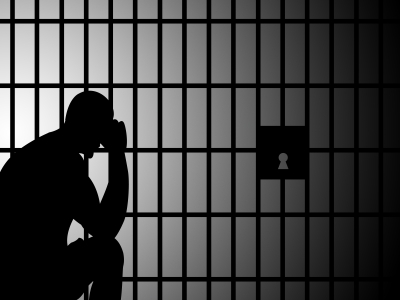(Photo via Stuart Miles / FreeDigitalPhotos.net)
Here at XY Culture we focus on sharing insights and skills to help us relate more effectively to ourselves and our loved ones, with a uniquely masculine angle. It’s all about knowing thyself, healing thyself, realizing your individual potential, and then healing or strengthening your family from there.
We will increasingly discuss public policy topics that affect the health of American families or the rights of individuals, and these will sometimes be opinion pieces. Owing to the shortage of time (voting day is tomorrow!), we won’t have the research-based preamble that I generally prefer for the following topic, before we plunge into opinion.
This one is short, and goes out to our California readers:
PLEASE VOTE YES ON PROPOSITION 47 this Tuesday!
Why? The mass incarceration of Americans – generally African American and Latino, and generally male – has become one of the biggest problems affecting many families. This is despite the fact that people of all ethnicities abuse drugs at about the same rate (sources include Drug Policy Alliance and “The New Jim Crow” — see below links).
Proposition 47 generally aims to lower the criminal penalty associated with a range of drug possession crimes and other minor crimes (more detail linked below; one example is lowering the penalty for some crimes from a felony to a misdemeanor).
Please don’t believe the fear-mongering about this proposition releasing thousands of prisoners onto the streets. Here are some data points to review – first, a study conducted by Stanford Law School and the NAACP on the impact of CA Proposition 36 (which was passed in 2012 and reduced the severity of the “Three Strikes” (and it’s life) law passed in 1994), has found that inmates released under Prop 36 have had significantly lower rates of recidivism, or committing new crimes, when compared to national and California averages.
Second, citing numerous studies by academic researchers and the WHO, the Drug Policy Alliance concludes:
Countries that have adopted less punitive policies toward drug possession have not experienced any significant increases in drug use, drug-related harm or drug-related crime relative to more punitive countries. A World Health Organization study found that the U.S. had the highest lifetime drug use rates by a wide margin, despite its punitive policies – concluding that decriminalization has little or no effect on rates of use.
In terms of social safe guards, the proposition would only authorize resentencing hearings (and thus the potential release) of nonviolent criminals who are not rapists, murderers, or child molesters.
The proposition plans to redirect most of the savings (from reduced prison costs, and despite the higher court costs for resentencing) from the bill back into mental health and drug treatment (65%), with the remainder into K-12 school programs (25%) and victim services (10%). (Paige St. John in the Los Angeles Times points out that attempts by the Act’s proponents to promote the proposition as a transfer of money from prisons to schools is exaggerated, since only one quarter of the savings will go to schools).
Please see the below for more information, and don’t forget to vote tomorrow!
- LA Times (Paige St. John) assessment of Prop 47
- CA legislative analyst assessment of Prop 47
- Arguments for and against Prop 47
- Overview by the Drug Policy Alliance about the impacts of decriminalizing drug use and possession (PDF)
- NAACP / Stanford Law School: “Progress Report, Three Strikes Reform” (PDF)
- “The New Jim Crow: Mass Incarceration in the Age of Colorblindness” (Michelle Alexander, 2012)

I agree with the points made in today’s posting on Proposition 47 (disclaimer–I am not a California resident). I’ve worked to end the “school-to-prison pipeline” that criminalizes petty offenses in many states across the country–such as swearing or disrupting class. (see http://www.naacpldf.org/case-issue/bryan-independent-school-district-police-schools-complaint) These offenses are often disproportionately enforced by white police officers (“School Resource Officers) against students of color. This sets up a system which leads inevitably to the expectation and then, reality, that people who question authority–especially people of color–will be incarcerated, and so, our prisons are full of people who are not “criminals” but who ran afoul of laws designed to perpetuate old stereotypes, fueled by prejudice.
LikeLike
Thank you Steve very much for your comment and perspective on school infringements increasingly becoming prosecuted as crimes. Like the trend towards incarceration and barring prisoners and released inmates with a felony in their past from voting (at least, in many states), these clash strongly with the democratic ideals upon which our country was founded.
LikeLike
And it’s nice to see that Californians agreed with the above! 58.5% voted yes on 47 with all precincts reporting: http://vote.sos.ca.gov/returns/ballot-measures/
LikeLike